Cop30: is the UN climate summit over before it begins?
No high-level US representatives will attend, and most nations failed to submit updated plans for cutting greenhouse gas emissions

A free daily email with the biggest news stories of the day – and the best features from TheWeek.com
You are now subscribed
Your newsletter sign-up was successful
Keir Starmer has told his fellow world leaders at Cop30 that the “consensus is gone” when it comes to tackling climate change as the lack of any high-level US representatives at the talks has led to accusations that the event will have little effect.
Starmer insisted the UK was “all-in” when it comes to the fight against climate change and described green policies as a “win-win”, despite the fact that he has faced “pressure from US President Donald Trump, who has repeatedly criticised Britain’s net zero agenda”, said ITV News science correspondent Martin Stew.
The Brazilian city of Belém, the gateway to the Amazon, is hosting delegations from more than 190 countries for Cop30. But the absence of the Trump administration is a “watershed moment”, said EU Climate Commissioner Wopke Hoekstra. “We’re talking about the largest, the most dominant, most important geopolitical player from the whole world,” Hoekstra told Bloomberg. “It is the second-largest emitter. So if a player of that magnitude basically says, ‘Well, I’m going to leave and have it all sorted out by the rest of you,’ clearly that does damage.”
The Week
Escape your echo chamber. Get the facts behind the news, plus analysis from multiple perspectives.

Sign up for The Week's Free Newsletters
From our morning news briefing to a weekly Good News Newsletter, get the best of The Week delivered directly to your inbox.
From our morning news briefing to a weekly Good News Newsletter, get the best of The Week delivered directly to your inbox.
What did the commentators say?
“Every year people ask what difference Cop will make, given the thousands of flights that come along with it,” said Sky News. But this year, “those questions have grown louder”, coming at a “particularly precarious time for climate action”. UN Secretary-General António Guterres recently warned that the world has failed to hold the average global temperature at 1.5C above pre-industrial levels – the commitment of the Paris climate agreement a decade ago. Yet “fewer than 60” world leaders have registered to attend Cop30, compared with more than 80 at 2024’s Cop29 in Baku, and more than 150 in Dubai the year before. There is a “serious lack of accommodation” in the impoverished city of Belém; what’s left is prohibitively expensive. Some “furious countries even lobbied Brazil to switch cities”.
The US has sent delegations to climate summits over the past three decades, even when they had “scant desire” to address global warming, said The Guardian’s environment reporter Oliver Milman. But this is a “much more aggressive administration”, said Todd Stern, lead climate negotiator for the US under Barack Obama. In his speech at the UN General Assembly, Trump called climate change the world’s “greatest con job”. One former state department official said Cop30 could actually stand a better chance of a stronger climate agreement if the US does not attend. “If the choice is no US or a US that is there as a spoiler, to wreck and disrupt things, then I think most countries would prefer there to be no US.”
Indeed, the decision is “alleviating some concern” that “Washington would send a team to scupper the talks”, said Reuters. Last month, the administration threatened to “retaliate against nations” if they voted for a proposal put forward by the UN’s shipping agency, the International Maritime Organization, to reduce greenhouse gas emissions from ocean shipping. That “led a majority of countries” at the agency to vote to postpone the decision. The US also “pressured countries” negotiating the first global plastics treaty not to back an agreement to cap plastic production.
It’s not just the US that’s undermining the summit, said Politico. Around 100 of the 195 nations that signed the Paris Agreement missed the September deadline to submit their Nationally Determined Contributions (NDCs), or plans for cutting greenhouse gas emissions, to the UN. That includes the EU.
A free daily email with the biggest news stories of the day – and the best features from TheWeek.com
China, the world’s biggest greenhouse gas polluter, set a target to cut economy-wide net greenhouse gas emissions by 7% – an NDC “largely seen as modest”, said Bloomberg. “Most experts were hoping for an NDC north of 30%,” said Hoekstra. Even with “all the diplomatic language I would love to wrap around that, it’s hard to see how that is enough”.
What next?
Cop30 organisers have not laid out a main goal or deal going into the talks. The summit will instead “focus on implementation, or turning policies into tangible outcomes”, said Bloomberg.
Of the countries that did submit their NDCs by the deadline, the new plans are of a “much higher quality than the previous ones”, said Sky News. They mean that a “clear” fall in global greenhouse gas emissions is on the horizon for the first time, according to the UN. They are aided by the “dramatic and rapid roll-out of solar and wind power”. “More plans are expected to be published during Cop30, bringing some hope to the summit.”
China’s “remarkable progress on clean energy”, which has “soared beyond expectations”, leads some to hope that China will “take on a more proactive role in the talks”. It’s not clear whether there will be “major takeaways from this year’s summit”, but “pulling off an international meeting at a time of strained global relations will be a success in and of itself”.
Harriet Marsden is a senior staff writer and podcast panellist for The Week, covering world news and writing the weekly Global Digest newsletter. Before joining the site in 2023, she was a freelance journalist for seven years, working for The Guardian, The Times and The Independent among others, and regularly appearing on radio shows. In 2021, she was awarded the “journalist-at-large” fellowship by the Local Trust charity, and spent a year travelling independently to some of England’s most deprived areas to write about community activism. She has a master’s in international journalism from City University, and has also worked in Bolivia, Colombia and Spain.
-
 Political cartoons for February 15
Political cartoons for February 15Cartoons Sunday's political cartoons include political ventriloquism, Europe in the middle, and more
-
 The broken water companies failing England and Wales
The broken water companies failing England and WalesExplainer With rising bills, deteriorating river health and a lack of investment, regulators face an uphill battle to stabilise the industry
-
 A thrilling foodie city in northern Japan
A thrilling foodie city in northern JapanThe Week Recommends The food scene here is ‘unspoilt’ and ‘fun’
-
 The Alps start the countdown to ‘peak glacier extinction’
The Alps start the countdown to ‘peak glacier extinction’IN THE SPOTLIGHT Central Europe is losing ice faster than anywhere else on Earth. Global warming puts this already bad situation at risk of becoming even worse.
-
 Femicide: Italy’s newest crime
Femicide: Italy’s newest crimeThe Explainer Landmark law to criminalise murder of a woman as an ‘act of hatred’ or ‘subjugation’ but critics say Italy is still deeply patriarchal
-
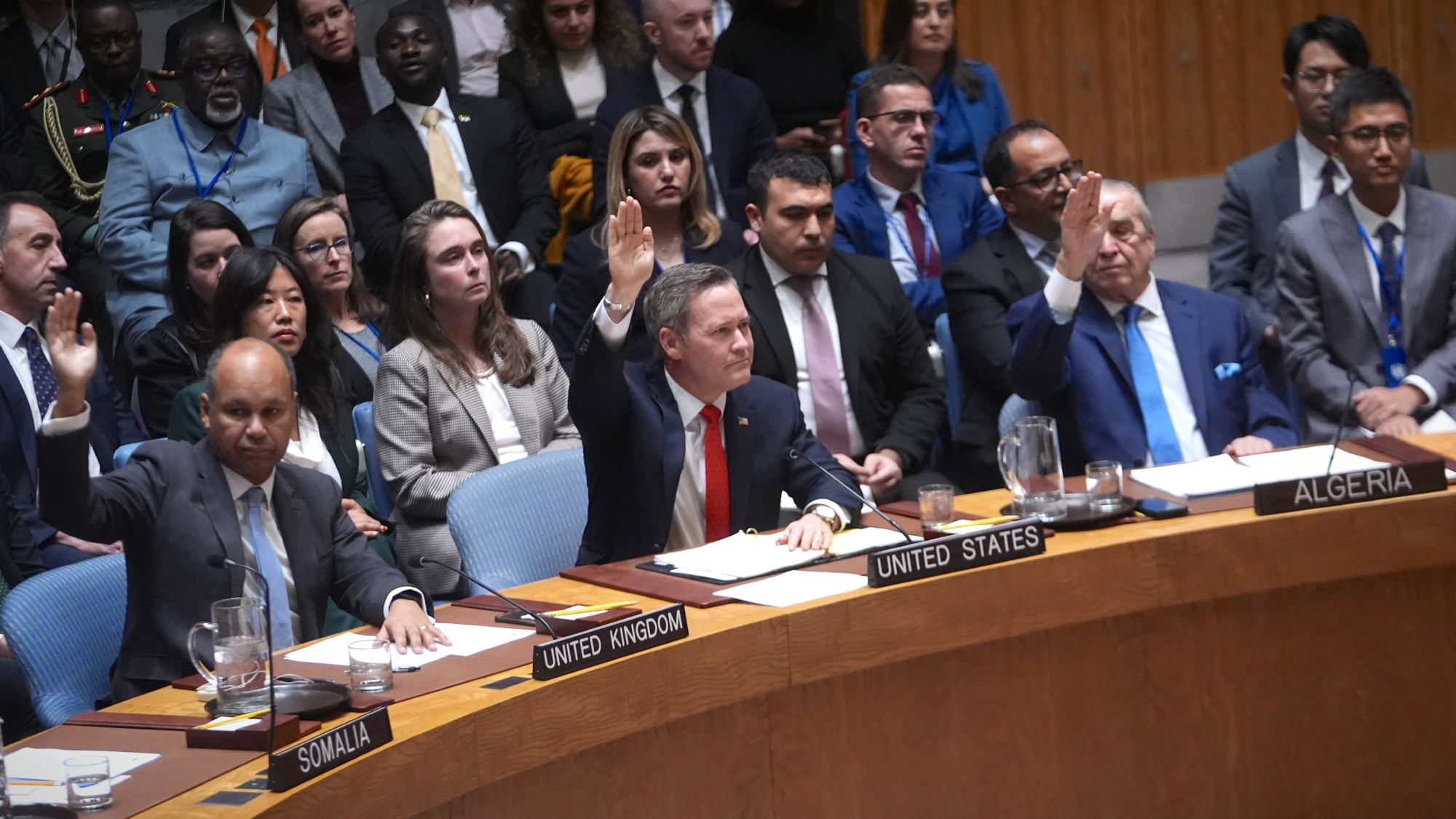 UN Security Council backs Trump’s Gaza peace plan
UN Security Council backs Trump’s Gaza peace planSpeed Read The United Nations voted 13-0 to endorse President Donald Trump’s 20-point plan to withdraw Israeli troops from Gaza
-
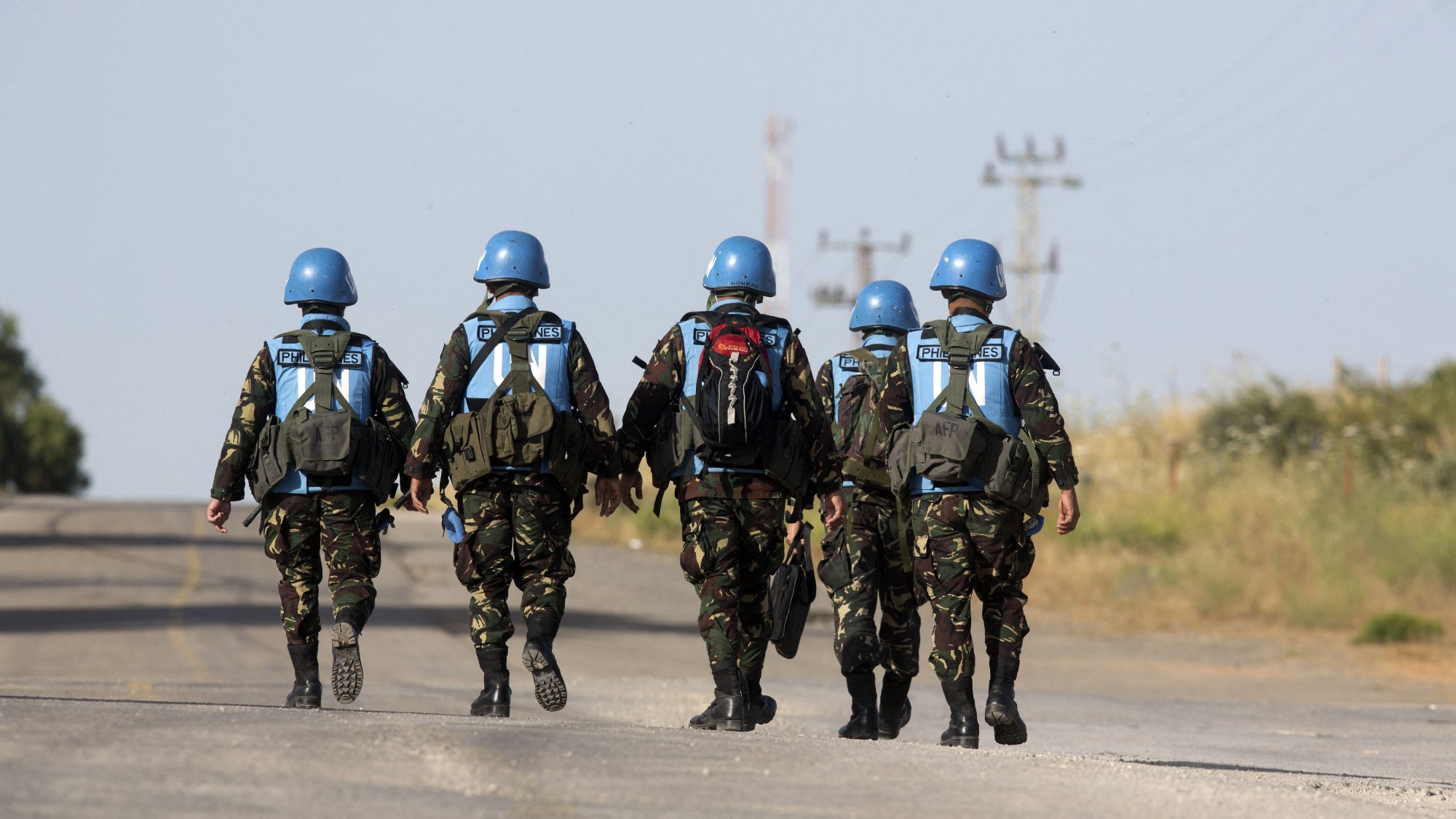 ‘Never more precarious’: the UN turns 80
‘Never more precarious’: the UN turns 80The Explainer It’s an unhappy birthday for the United Nations, which enters its ninth decade in crisis
-
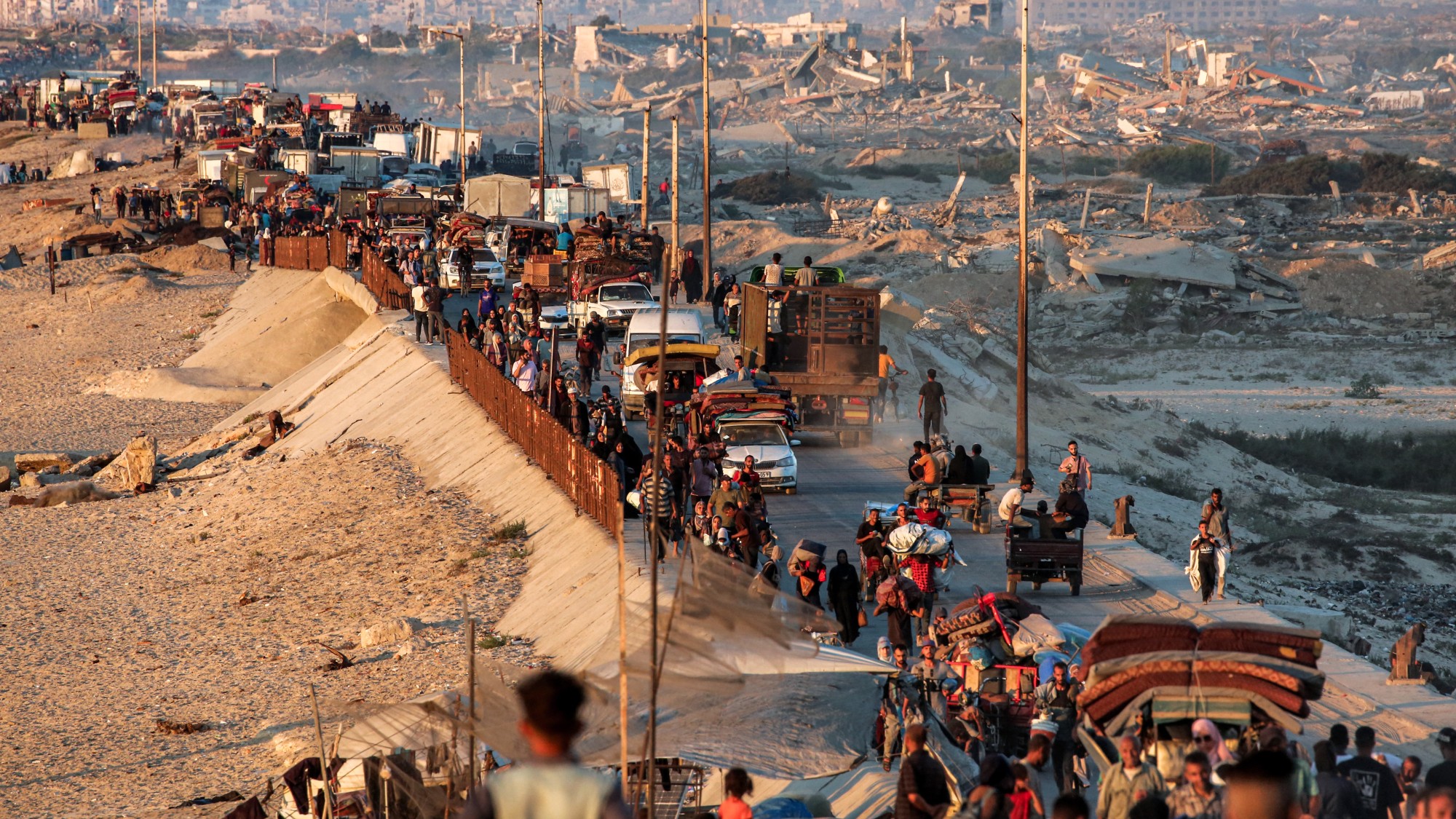 Gaza genocide: will UN ruling change anything?
Gaza genocide: will UN ruling change anything?Today's Big Question Commission of inquiry’s findings ‘give unprecedented weight’ to genocide claims
-
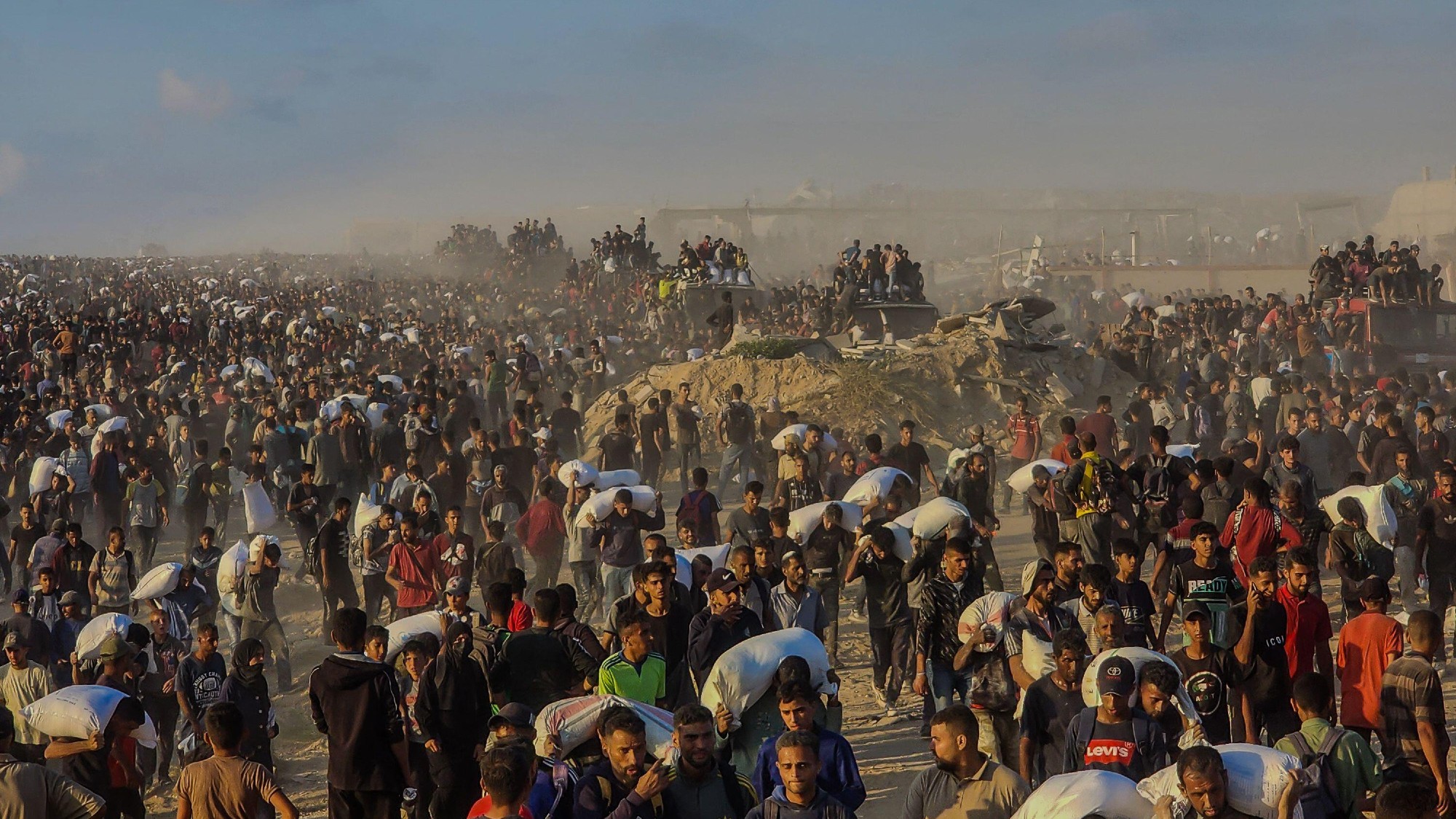 Why ‘anti-Islam’ bikers are guarding Gaza aid sites
Why ‘anti-Islam’ bikers are guarding Gaza aid sitesIn The Spotlight Members of Infidels MC, who regard themselves as modern Crusaders, among private security guards at Gaza Humanitarian Foundation sites
-
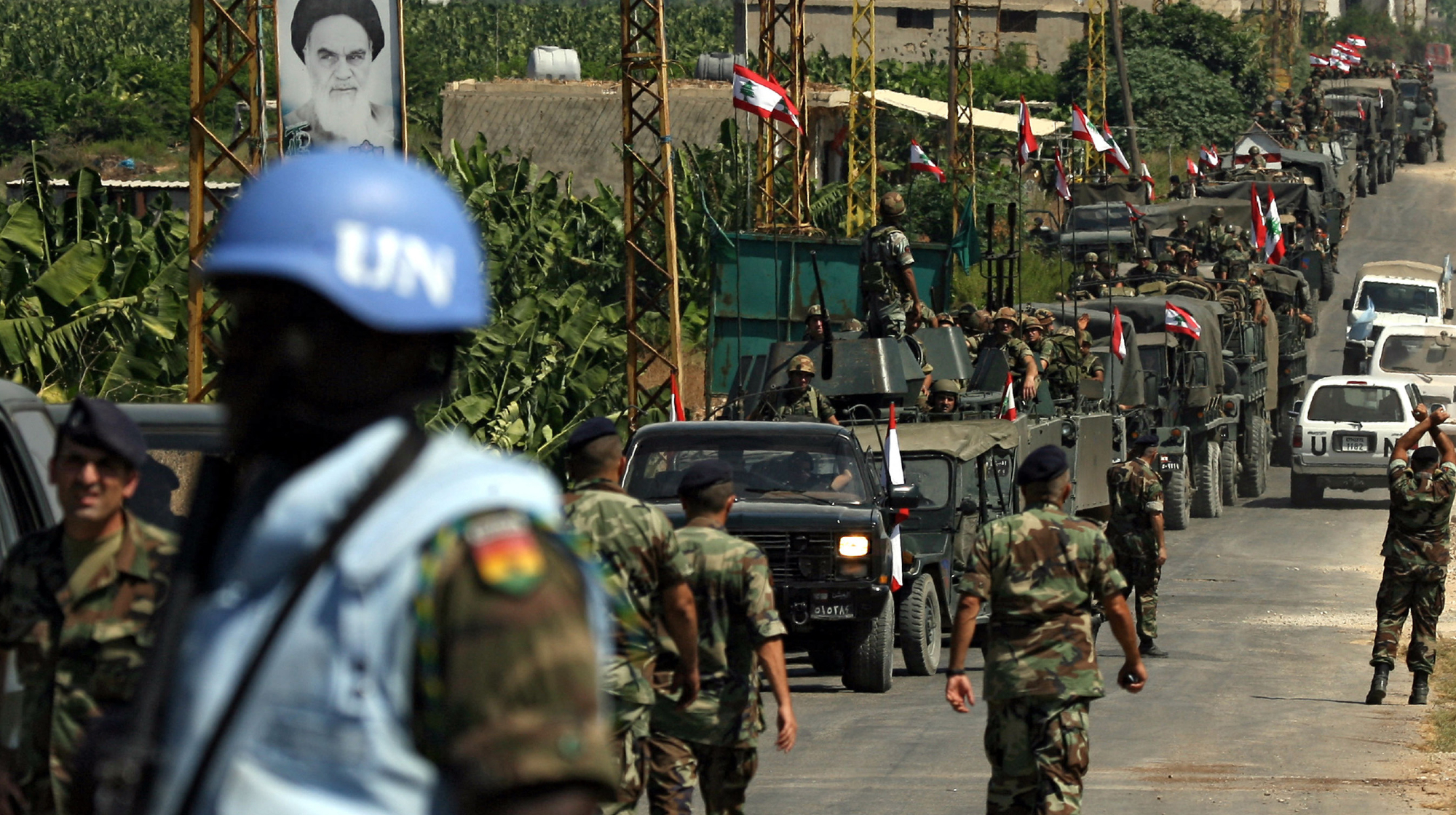 UN votes to end Lebanon peacekeeping mission
UN votes to end Lebanon peacekeeping missionSpeed Read The Trump administration considers the UN's Interim Force in Lebanon (UNIFIL) to be a 'waste of money'
-
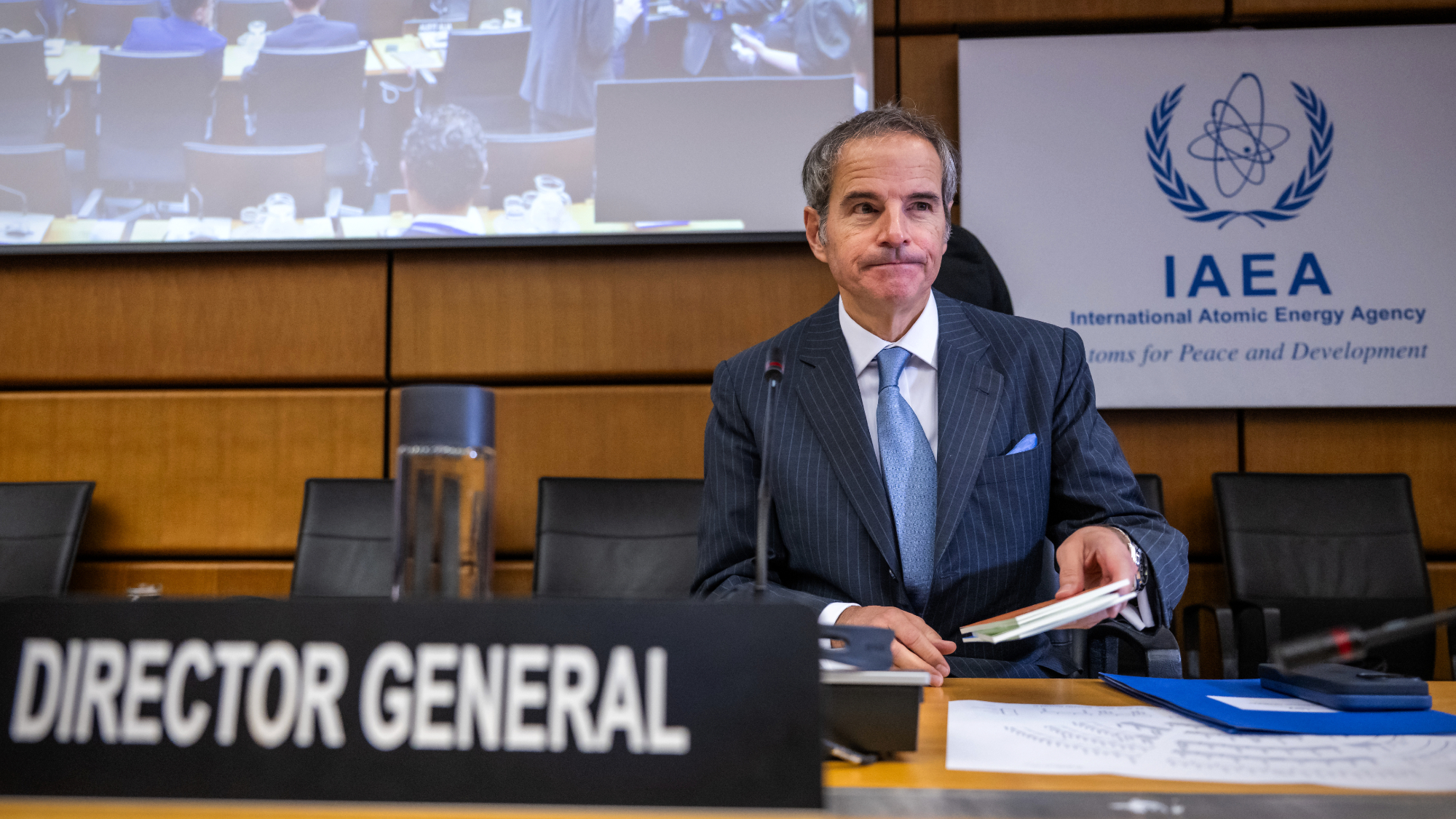 IAEA: Iran could enrich uranium 'within months'
IAEA: Iran could enrich uranium 'within months'Speed Read The chief United Nations nuclear inspector, Rafael Grossi, says Iran could be enriching uranium again soon